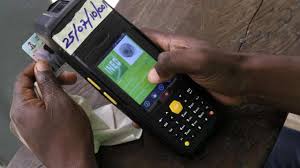Vocal human rights lawyer and crusader, Chief Andrew Osagie has described plans by the federal government to build and implant in the orbit, a new satellite with capacity to eavesdrop, capture signals from all telecommunication installation in areas it is tasked to cover.
According to him, “What this means is that things like voice calls, video calls, e-mails can be captured and such unsolicited access to citizens privacy contravenes the constitutional provisions on the rights of Nigerians”.
He said “Even in several democracies, such obnoxious infractions have not been made on their citizens”.
“The real meaning of this plan is that no Nigerian can proudly say he has personal, family, corporate or even national secrets because they will be open to the satellite to decode and transmit to the central processing unit.
“Every Nigerian is not a criminal or terrorist or kidnapper. And let me tell you, the percentage of criminals in Nigeria is far less than 2 per cent and as such, investing in the satellite will amount to insensitivity and blatant embarrassment on the intelligence of Nigerians.
“Yes, they can say that it will cover the entire nation at a time, but who will tell you when the satellite will or will not be beamed on where you are living or working.
Osagie however, revealed that “If the plan is allowed to go ahead, he will challenge the import of the satellite in a competent court of law on grounds of inversion of privacy.
Even before the current plan, it would be recalled that Nigeria allegedly loss of about $10 billion to foreign geospatial information sourcing firms due to what insiders term as lack of awareness on the space potential of Nigeria in the first attempt to launch a satellite.
Currently, Nigeria boosts of two satellites in the orbit, including Nigeria Sat 1 and Nigeria Sat X, the second built exclusively by Nigerian scientists.
During the launch, Nigerians were told that they will boost telecoms signals in areas that are underserved, but up till now, the Nigerian Communications Commission (NCC) still tell Nigerians that over 40 per cent of Nigerian landmass is not yet serviced by telecom.
The scenario is therefore casting serious doubts on the truth in the defence of the satellite before the launch by the apex government few years ago.
Besides, Nigerians were also made to understand that signals transmitted by both orbited satellite will assist in giving imageries to the security agencies, still yet, the Nigerian Army or any of the security forces has not come out to say that it accessed credible data from the two.
Minister of Communications, Barr Adebayo Shittu who announced the plan of the government recently said that the government would build and launch the two satellites with an expected $550 million from China’s Export-Import Bank.
According to him, the fund covered 85 percent of the cost of the project, while investors and government in Nigeria would fund the rest 15 percent of the cost.
Delivery specifications on both satellites show that Nigeria Sat 2 and Nigeria Sat-X are improvements on their predecessor, Nigeria Sat 1.
Otherwise, where the NigeriaSat-1 could only capture images of 32 meters in size and above, Nigeriasat-2 could see images of 2.5 meters in black and white. Nigeria Sat-X can capture image not less than 22 meters and in colours.
Besides, the satellite is meant to provide a bridge between Nigeria Sat-1 and Nigeria Sat-2. This means that Nigeria’s satellite project is useful in security, delineating electoral constituency, agriculture, climate change, mitigation of disaster and environmental monitoring.









